
- Augusta University
- Georgia Cancer Center
- Research
- GCC Faculty Directory
- The Chadli Laboratory
The Chadli Laboratory
Ahmed Chadli, PhD
Associate Professor, Medicine
Associate Professor, Biochemistry & Molecular Biology
Associate Professor, Graduate studies
Member, Molecular Oncology & Biomarkers Program
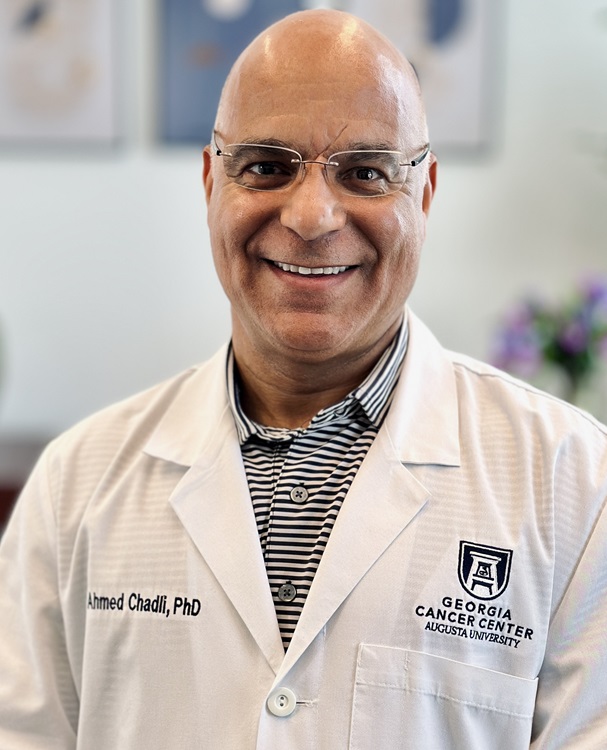
Jump to: Scientists Summary Research Interests Selected Publications Research Team
Contact Us
The Ahmed Chadli Lab
Health Sciences Campus
GCC - M. Bert Storey Research Building
1410 Laney Walker Blvd., CN-3116C1
(706) 721-4661
(877) 291-2406
Scientists Summary
The Ahmed Chadli Laboratory focuses on understanding the role of molecular chaperones in tumorigenesis and developing novel therapeutic agents targeting these molecules for cancer treatment.
Research Interests
The Hsp90 chaperoning machine is an exciting molecular target for cancer treatment.
Indeed, Hsp90 maintains the conformation and stability of oncogenic and non-oncogenic proteins that are essential for cancer cell survival and proliferation in the stressful environment of the tumor. Several inhibitors of Hsp90 are currently undergoing clinical trials for various cancer treatments. Most of these inhibitors inactivate the ATPase activity of Hsp90, causing proteasomal degradation of its “client” proteins leading to drastic reduction of tumors in several animal cancer models. Unfortunately, all these inhibitors also induce the so-called “heat shock response” as reflected by overexpression Hsp70 and Hsp27, which are known potent apoptosis inhibitors. It is believed that this phenomenon underlies the modest outcomes observed in the clinic with Hsp90 inhibitors. Thus, novel modulators of this machine with different mechanisms of action are urgently needed.Our drug discovery program is designed to remedy this shortcoming of the first generation of Hsp90 machine inhibitors. We have developed high-throughput screen based on chaperoning of the progesterone receptor (PR), a well-established physiological clients of Hsp90, and the five chaperones and co-chaperones that constitute the core components of the Hsp90 machine required for folding PR, i.e., Hsp90, Hsp70, Hsp40, heat shock proteins organizing protein (Hop) and p23. It is likely that this novel technology will have a powerful impact on the Hsp90 machine targeted drug discovery. We are currently screening for modulators of Hsp90 machine using commercially available libraries as well as collections of natural products purified from medicinal plants used worldwide for various diseases.
Breast cancer is the leading cause of cancer death among women worldwide and it consists of several subtypes.
Hormone and targeted therapies have significantly improved the outcomes for patients with steroid receptor and HER2+ breast cancer subtypes. Most patients ultimately develop resistance to single pathway-targeted chemotherapies. Moreover, there are no targeted therapies for triple-negative breast cancers. A critical barrier to progress in treating breast cancer is the absence of therapeutic strategies that transcend subtype and that override resistance. We have shown that silencing the co-chaperone UNC45A inhibits proliferation of cancer cells of all subtypes without affecting normal cell proliferation. In vivo studies using various xenograft cancer models showed that UNC45A is essential for tumor growth. We hypothesize that the co-chaperone UNC45A controls cancer cell proliferation through regulation of nuclear receptor transcriptional activities and that inhibition of UNC45A is a potential therapeutic strategy for all breast cancer subtypes. Interestingly, a novel tissue-specific knockout mouse model recently developed in our laboratory suggests a key role for UNC45A in cell metabolism. Therefore, we are investigating the role of UNC45A in the interface cardiovascular, cancer and obesity. We have shown that UNC45A affect the chaperoning of PR by the Hsp90 machine and we will modify our high-throughput assay to identify small molecule inhibitors of UNC45A.
Selected Publications
Natural Cyclic Peptides: Synthetic Strategies and Biomedical Applications.
Buchanan D, Mori S, Chadli A, Panda SS.Biomedicines. 2025 Jan 20;13(1):240. doi: 10.3390/biomedicines13010240.PMID: 39857823
Research Team
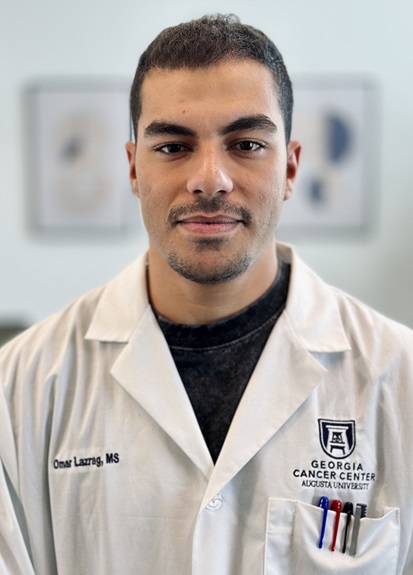
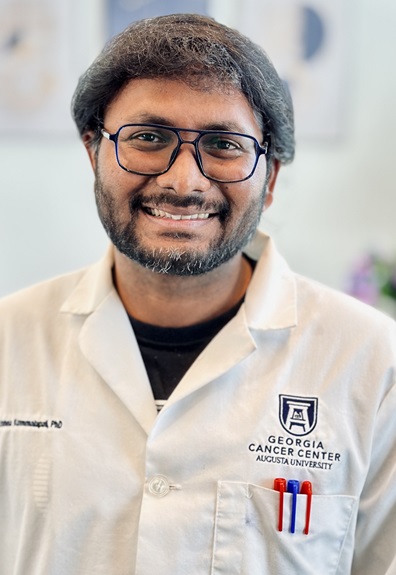
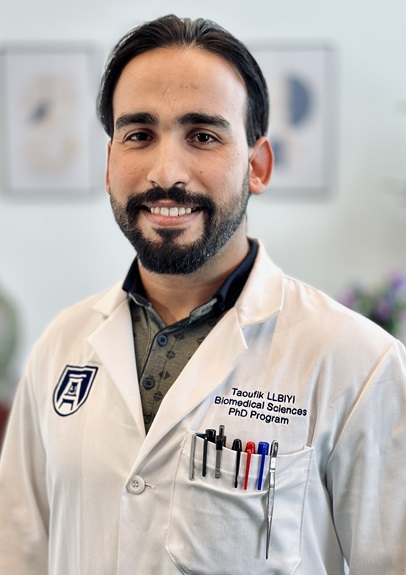

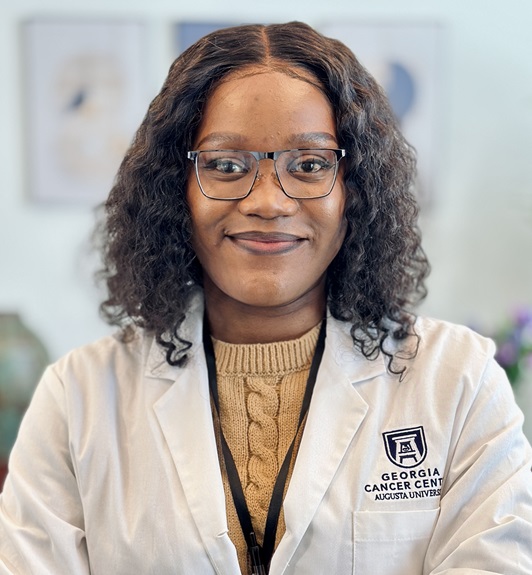
Reducing the Burden
The Georgia Cancer Center at Augusta University is dedicated to reducing the burden of cancer in Georgia and across the globe through superior care, innovation, and education. Through unprecedented expansion, the Georgia Cancer Center is providing access to more first-in-the-nation clinical trials, world-renowned experts and life-saving options.
Follow the Georgia Cancer Center